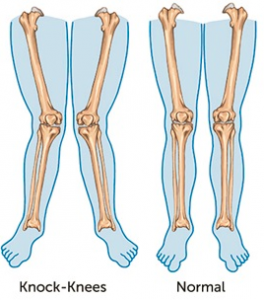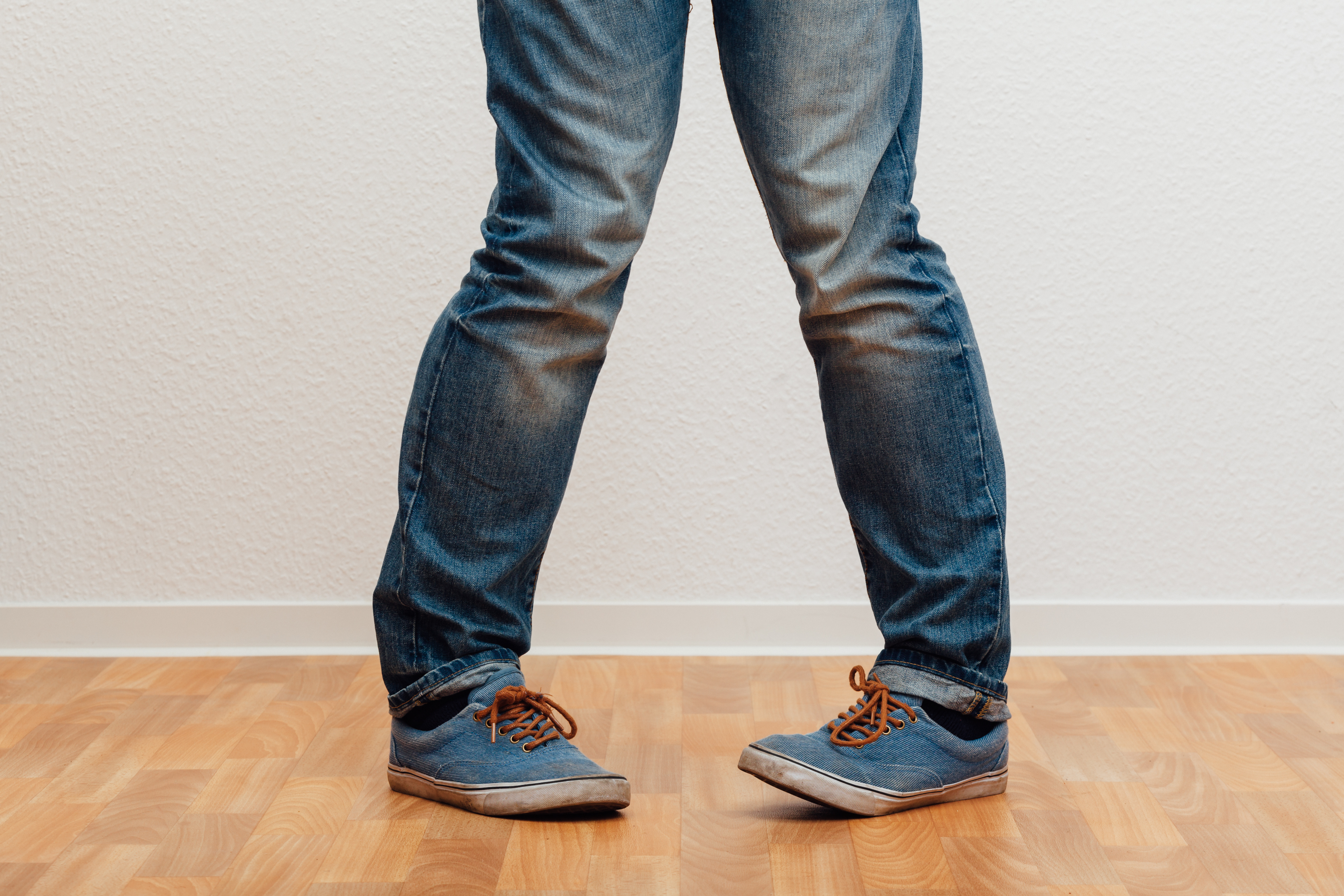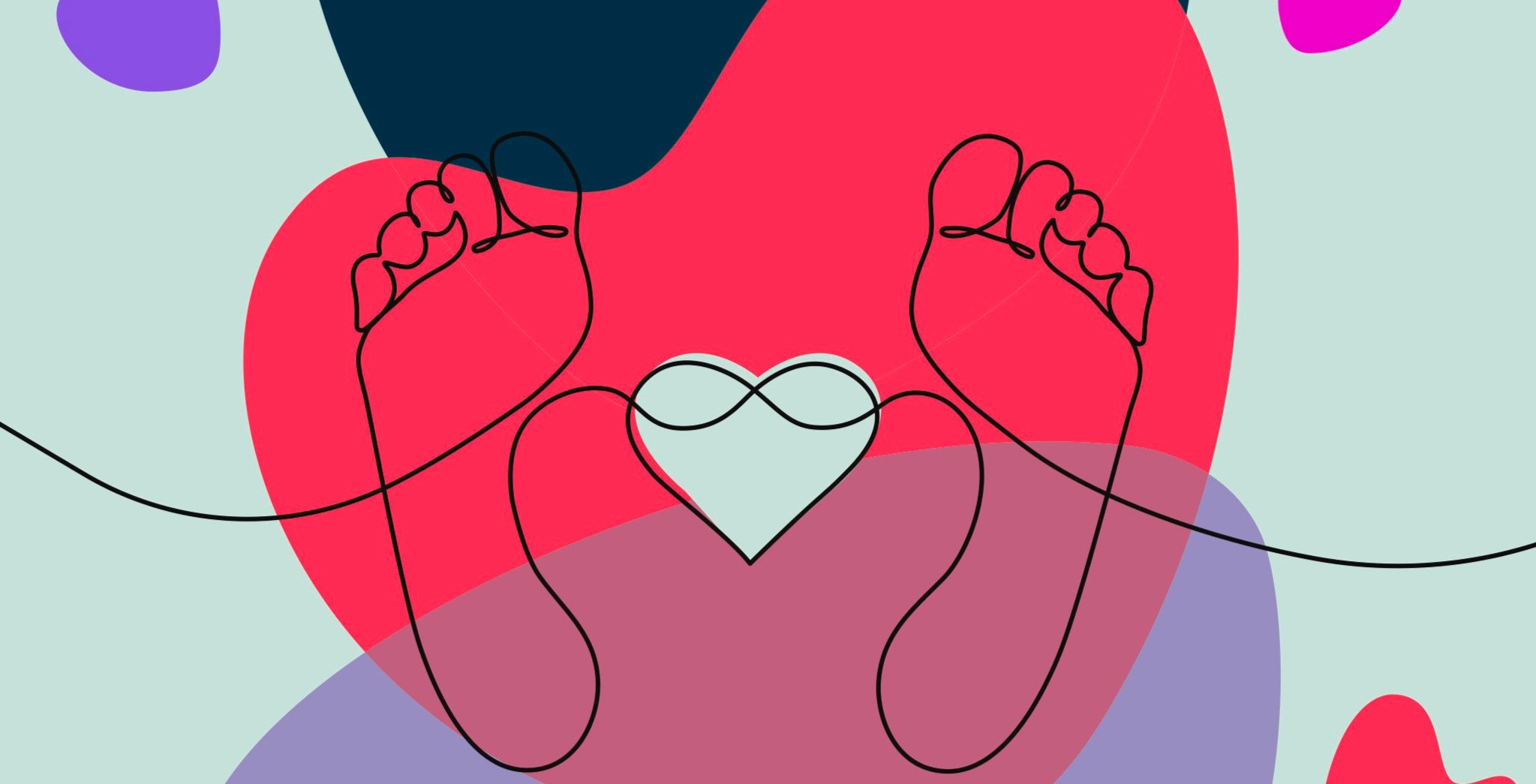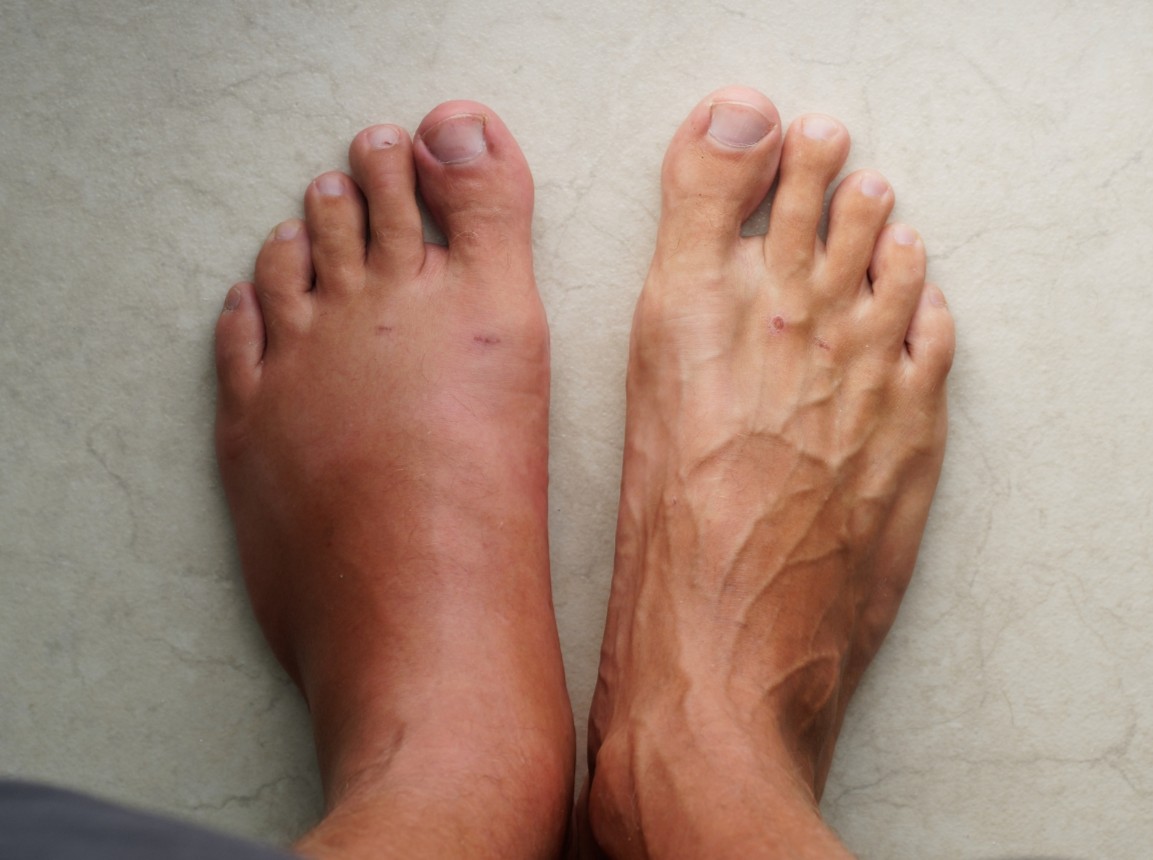Knock knees describes the position of the knees where they are turned inwards toward one another, meaning they ‘knock’ or brush against one another as you walk. It is medically known as genu valgum, and is common in children between the ages of 3 and 5. This knee position in young children can help maintain balance when developing their walking. To learn more about kids’ foot problems, click here.
 Knock
knees are usually a normal variation during the growth and development of the lower limbs. Where knock knees don’t develop until the age of 6
or persist after the age of 8, there may be an underlying condition such as rickets or osteomalacia. Contributing factors to the development
of knock knees include:
Knock
knees are usually a normal variation during the growth and development of the lower limbs. Where knock knees don’t develop until the age of 6
or persist after the age of 8, there may be an underlying condition such as rickets or osteomalacia. Contributing factors to the development
of knock knees include:
The primary symptom of knock knees is knee misalignment where the knees bend inwards. When the knees are together, a significant gap between the ankles can be observed. One knee may turn inwards more than the other and pain isn’t typically experience during young childhood years. Where knock knees continue beyond the childhood years, symptoms may include:

The majority of knock knees in young children are reported to resolve by the age of 7 and aren’t usually of great concern. Where knock knees persist into adulthood, management needs to be aimed at the issues that this misalignment is creating as opposed to the knee position itself. In later years, it is also important to rule out the possibility of any underlying bone conditions. Your podiatrist will be able to create a tailored management plan based on the symptoms you’re experiencing and your history.

Valentine’s Day is about love, appreciation, and thoughtful gestures but let’s be honest, most gifts don’t last longer than a week. This year, choose something different. Choose a gift that offers comfort, confidence, and real care: a Medical Pedicure.

We’ve all had those days — you come home after hours on your feet, kick off your shoes, and notice your ankles look puffier than usual.
Swelling in the feet, ankles, or legs (known medically as edema) isn’t always a reason to panic. It can be as simple as a
salty lunch or a long flight.
But what if it’s happening more often — or seems to be getting worse? Swelling can sometimes be a sign of something more serious. Here’s
what could be going on and when to check in with your doctor.
Keeping your family on their feet and helping them to walk, run, play and exceed their goals is why we love getting up in the morning.
Ground Floor, One Health Building
122 Remuera Rd, Remuera
Auckland 1050, New Zealand
| MON - FRI | 7:30am – 6:30pm |
| SAT | 8:30am – 4:30pm |
| SUN | Some availability |
Make an Appointment
Online Schedule
Our virtual receptionist is available 24/7 to help with general questions, booking requests, and clinic information, even when our team is busy, or it's after hours.
Whether you're calling us or using our website, you'll get fast assistance any time of day. And if your query needs a personal touch, a member of our team will follow up as soon as possible.
If you’d like to see a podiatrist who speaks your preferred language, just give us a call and we’ll help you book.